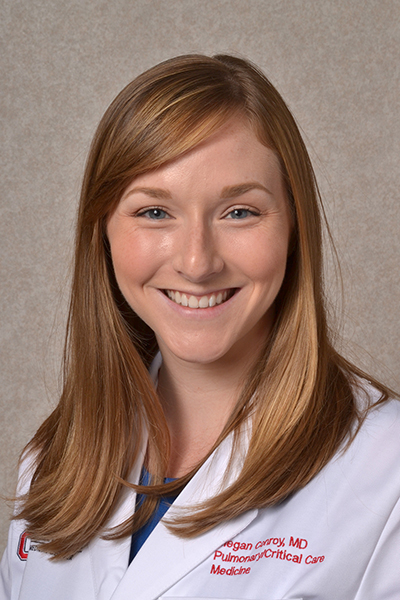Graduate School During Fellowship: Negotiating the Margin
By: Megan Conroy, MD
March 19, 2020
A lesser known theory of educational motivation, McClusky’s theory of margin (1963), conceptualizes motivation as an interaction between the demands one incurs (load) and the resources that one has to manage this load (power), deeming that which remains as the margin. Your load includes your work as a fellow, social demands and personal life; your power includes all of your resources “i.e., abilities, possessions, position, allies, etc., which a person can command in coping with load” (McClusky, 1970, p. 27).
Medical training is often a fight to negotiate this margin—to find ways to meet the load placed upon us and excel in our learning. And yet, despite living this struggle for the years of medical school, residency, and now fellowship, I made the choice to add graduate school to my load. Many of you may be considering the same choice to diversify and further your formal education by the addition of graduate course work to your fellowship.
For me, as an aspiring Clinician Educator this has meant seeking a Masters in Medical Education and striving to complete this thesis program in just 2 years. Combining classes with night float, online work with managing a busy ICU, and thesis research with learning pulmonary and critical care medicine (not to mention a personal life) has proven challenging, but possible. Now having completed 50% of the coursework with thesis research taking off, I can’t pretend to have all of the answers but for those considering the load of graduate school, let’s consider some of your power to keep your margin workable.
Deciding to enroll: be honest and strategic
Start by determining your reasons for seeking additional formal education and honestly evaluating the benefit that you (as a person and motivated learner) and your career (as someone who has already mortgaged their mind to become a physician) will gain. This will be different for each of us, and require some cost- benefit analysis. If you’re struggling in this stage, consider applying some expectancy-value theory by analyzing your personal subjective task value as described by Gorges  .
.
Find ways to "double dip" on your work: can a class assignment be re-directed to be applied in your clinical, teaching, or research life as a fellow? Can your research in fellowship be the topic for program thesis, can the final paper for a class be re-worked to submit for publication?
Seek support of program leadership and be deliberate in crafting elective/research time to reach your clinical, academic, and personal goals. Combining an evening class with call or night float duties, or finding semesters where you can take a heavier academic load requires some negotiation. Be upfront with your program leadership and those who control the schedule about your needs and their expectations to ensure that they align.
Time management: you think you’re an expert? The cadence of class assignments and due dates is a far cry from the time management skills we learn in stabilizing several critically ill patients in the ICU. Online classes may offer flexibility in hours, but often require time investment to dialogue with learners and still come with due-dates. Strategies for managing this may change from research rotations to ICU rotations, and communication with instructors regarding how to drive your learning as an adult can be key tools in this. Instructors who are used to working with adults employed full-time are also likely to be open to additional flexibility.
Above all, try to let go of your perfectionism in order to move from surface learning to deep learning: returning to the concept of motivation, I suggest that you enter any formal learning experience with an understanding of your reasons for participation. You’ve proven that you’re capable of doing the work to get the A (or you probably wouldn’t be where you are today) but adding graduate work to your load as a fellow is probably most advisable when you are motivated to learn for transformation, not just achievement. The details of how to combine the load work themselves out from there (with constant attention to time management, communication and some meticulous scheduling….)
References:
Gorges, J. (2016) Why adults learn: Interpreting adults’ reasons to participate in education in terms of Eccles’ subjective task value. International Online Journal of Education and Teaching (IOJET), 3(1). 26-41.
McClusky , H.Y. (1963) The course of the adult life span. In W.C. Hallenbech (Ed.), Psychology of adults. Chicago: Adult Education Association of the USA.

About the Author
Megan Conroy, MD, is chief fellow in pulmonary and critical care medicine at The Ohio State University. Her clinical interests lie in critical care medicine and asthma, and she is a candidate for a Master’s of Medical Education. Her research interests are in better understanding the factors influencing entrustment decision-making among physicians supervising trainees. She is a fellow-in-training member of the CHEST Airways Disorders Network Steering committee, a member of the CHEST Trainee Work Group, and a fellow-in-training on the CHEST Physician Editorial Board. Upon completion of her fellowship in July 2020, she will be joining faculty at The Ohio State University Division of Pulmonary, Critical Care, and Sleep Medicine with a focus in severe and difficult-to-treat asthma and medical education.